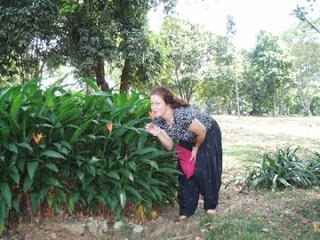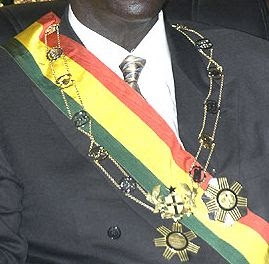> Sometimes when I think of what to write here on my blog I feel like my overall topic -“Africa can be nice”- is off the chart. What am I trying to do here? Convince all of you that there acctually is good news (aka “rain”) in Africa?
Sometimes when I think of what to write here on my blog I feel like my overall topic -“Africa can be nice”- is off the chart. What am I trying to do here? Convince all of you that there acctually is good news (aka “rain”) in Africa?
How can I think of doing this when there are very serious problems out there. When we all read about draught and floods, rebel leaders and dictators impressively cold to their subjects, continous cases of malaria and HIV/AIDS, diamond and oil findings making no change for people close to them, corruption being so widespread that it appears ironic and international aid hitting historical highs, people dying on the poor roads or in bloody rituals and yet again other Africans fleeing for their lives or to be able to use their degree to make some more money.
What can the other perspective (a crab running around in the backyard, a concert, a fellow blogger) really do? According to Ugandan journalist Andrew Mwenda it makes all the difference. See his TED speech here. Of course I agree with him to some extent, otherwise I’d stopped blogging long time ago – or blogged about something else, more likely. Now I am rather thinking about how to expand my writing on this topic I have become so passionate about.
Because – and this is what I am trying to blog about – there is also just enough sun and just enough rain to grow wonderful vegetables and fruits grow, good leaders and cooperation between people who have a lot to contest, there are nurses who work even though their workload is heavy and the pay isn’t much. There are small steps being taken to minimize traffic accidents an an example, there are rituals that are important and healing and many of those who emigrate send money home especially in support of education.
And I am not alone. Blog portals like Global Voices Online are out there trying to broaden the picture and maybe most importantly highlight that all media is being written/edited by individuals with an agenda. At the African Loft where, according to the site itself “the people and friends of Africa mingle” the Positive Africa is being debated.
The blog Africa Works basically does the same thing and also have a bunch if interesting links, among others to African newspapers. Also I found some more Ghanaian bloggers adding their perspective. I especially liked this one. See Blogs in Ghana on the right.
If we don’t talk about the good things that is going on in Africa we might be too tired and sad to critically look into the pitfalls of foreign aid, for instance. Or how to really combat corruption.
Isn’t this how the web ultimately should be used? Adding the news that doesn’t make it to print.
In the pic: A scared, hungry child hiding – or a content, joyful child playing hide-and-seek?
 Earlier, I have posted about people in motion, people who want something and who are in themselves an inspiration to others.
Earlier, I have posted about people in motion, people who want something and who are in themselves an inspiration to others. 






